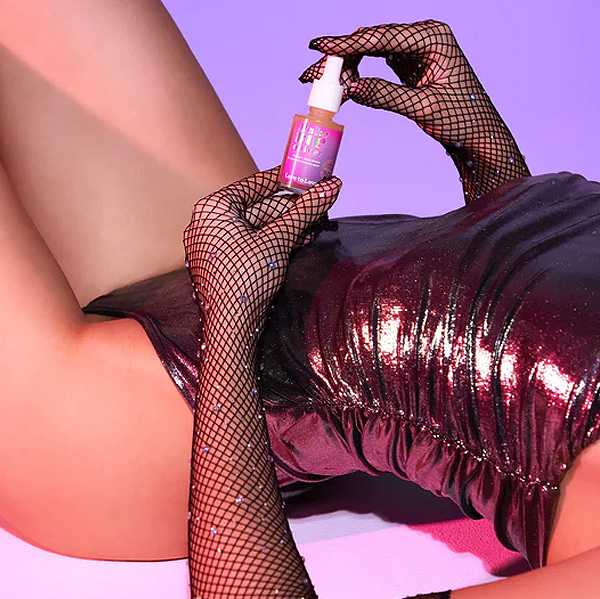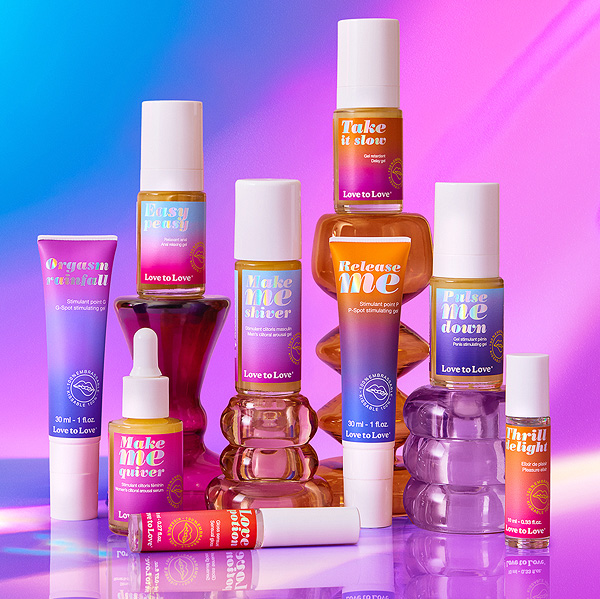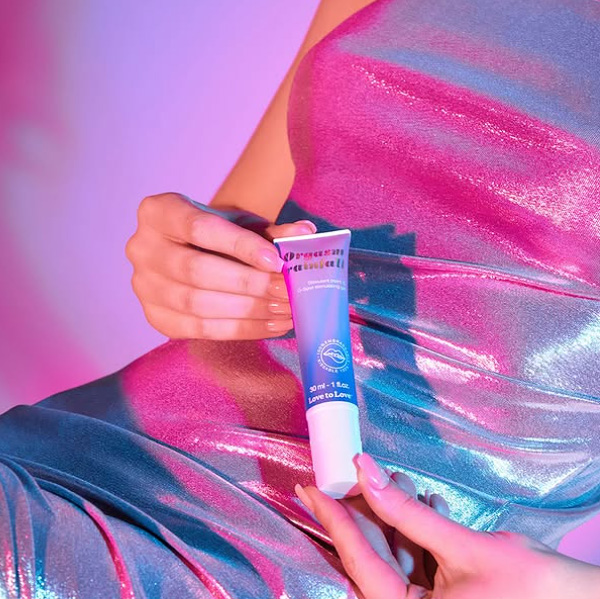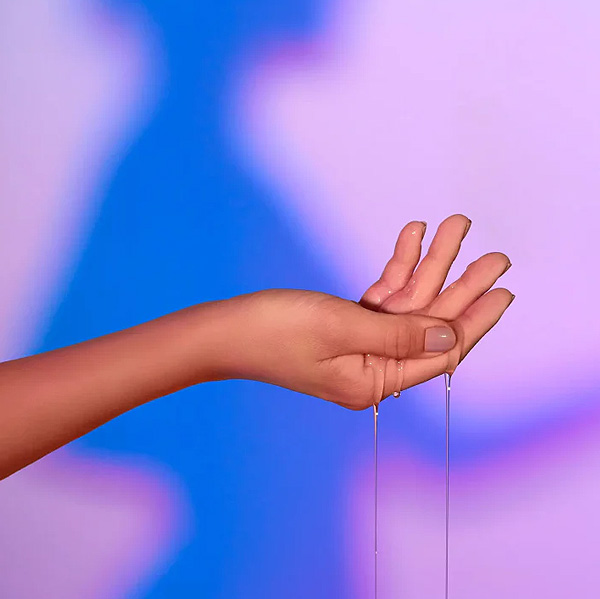Love to Love ~ Masters of Pleasure and Sexuality… an Intimate Chat
 By ASI EFROS
By ASI EFROS
In this powerful interview, Anne Meunier — International B2B Director at Love to Love — shares how the brand is transforming the conversation around pleasure, intimacy, and self-love for all genders, bodies, and stages of life. (See entire interview video below)

Q. In your view, how has society’s perception of sexuality evolved in recent years?
A. We are witnessing a real evolution — even a revolution — in how society perceives sexuality. For a long time, it was taboo, confined to the private sphere, or tied to performance. Now, it’s finally opening up to healthier, more inclusive, and more compassionate dimensions. Today, we talk about pleasure as a right, not a privilege. We talk about consent, diversity, self-love, accepting bodies as they are, and a desire that can be expressed in many ways, without rigid labels. At Love to Love, we celebrate this new era where sexuality is no longer a taboo subject but a pillar of personal fulfillment. Our mission is to support this liberation with sensory, playful, de-stigmatized products — and most importantly, products that are accessible to everyone, without judgment. Pleasure is a universal language, and it’s time to speak it out loud.

Q. What are some taboos you believe still need to be challenged?
A. There are still many, unfortunately. We often think that society has freed itself, but some topics are still silenced or stigmatized: female pleasure, desire during and after perimenopause and menopause, sexuality for people with disabilities, anal exploration, masturbation, adult toys… In 2025, it’s still hard for many to talk about these things without shame or judgment. At L2L, we want to help break these barriers with humor, color, and softness. Breaking taboos doesn’t always mean shocking people; it’s more about normalizing. The more we make sexual wellness visible, joyful, and inclusive, the more we allow everyone to live their pleasure without shame. We need to create safe spaces, educate without guilt, and, above all, open up to all forms of sexual well-being. That’s the freedom we celebrate every day with our products.
 Q. How can couples redefine play (foreplay) as a fulfilling experience in itself?
Q. How can couples redefine play (foreplay) as a fulfilling experience in itself?
A. For a long time, foreplay was seen as just a necessary step before the “real thing,” as if there was a beginning, a goal, and an end. But pleasure doesn’t follow a linear path. It can start with a glance, a touch, a sensation… and never really stop. We see play as an adventure in itself. It’s a space for connection and intimacy. Redefining foreplay means removing performance pressure and focusing on fun, sensation, and emotion. Couples can find endless opportunities for discovery: trying a new texture, scent, hot-cold effect, surprising each other, laughing, improvising… Play becomes not only a moment of intimacy but also a space for excitement and creativity.
 Q. What steps can individuals take to reclaim their pleasure without guilt or shame?
Q. What steps can individuals take to reclaim their pleasure without guilt or shame?
A. The first step is deconstruction. Understanding that the shame we sometimes feel isn’t innate — it’s learned. It comes from societal norms, cultural or religious beliefs. Recognizing that is already a step toward reclaiming our power. Next, we need to reconnect with our bodies and desires, at our own pace. We need to give ourselves permission to explore, feel, say yes, and say no without judgment. We deeply believe that pleasure should be free, joyful, and guilt-free. That’s why we offer sensory, playful products designed to create moments of self-care — with no pressure, just pure fun and feeling. Finally, talking, sharing, and surrounding ourselves with positive and supportive discussions really help normalize and free us. Because, at the end of the day, pleasure is not shameful. It’s alive, vibrant, and very human. Q. How do attitudes toward sexuality differ among younger and older generations, and how can we foster more open conversations across age groups?
Q. How do attitudes toward sexuality differ among younger and older generations, and how can we foster more open conversations across age groups?
A. It’s clear that attitudes toward sexuality vary between generations, but the lines are definitely shifting. Younger generations, for example, grew up in an environment where sexuality is more relaxed, more about exploration, and where issues like gender and consent are more visible and openly discussed. On the other hand, older generations were often influenced by stricter norms, sometimes linked to notions of modesty or guilt — but that doesn’t mean they can’t be just as open or curious. We see pleasure as something that transcends age. L2L products are designed to be inclusive, inviting discovery no matter your age or life experience. And to foster more open conversations between age groups, it’s essential to create spaces for dialogue, listening, and kindness. This can be done through education, destigmatization, and even intergenerational campaigns where pleasure becomes a shared, accepted space of exchange. Q. How can women embrace menopause as a new and fulfilling chapter in their intimate experiences?
Q. How can women embrace menopause as a new and fulfilling chapter in their intimate experiences?
A. Menopause is a natural stage of life, but it’s still surrounded by many taboos — especially regarding sexuality. Too often, it’s seen as the end of sexuality or a loss of desire. But that’s not the case. It’s simply a transition period, where women can reinvent their relationship with their bodies, pleasure, and intimacy. At L2L, we encourage women to view menopause as an opportunity for self-discovery. It can be a time to free yourself from external expectations and focus on what really gives pleasure at this stage: new sensations, new practices, or even exploring pleasure. Products that support lubrication, elasticity, or offer warming or relaxing effects can help navigate this period with more ease and pleasure. The idea is to show that sexuality doesn’t end with menopause — it transforms, adapts, and can even become freer and more fulfilling than ever.
Q. Can we shift the narrative to view self-pleasure as an essential component of self-care and mental health?
A. Absolutely — it’s the right time to change the conversation! Too often, sexual pleasure is seen as a purely physical concept, when in fact, it’s deeply linked to our overall well-being. Pleasure, whether intimate or not, directly impacts our emotional balance, stress levels, and even our mood. It’s a form of self-care — a way to reconnect with your body, let go, and cultivate lasting well-being. We believe sexual pleasure, just like a good bath, meditation, or an evening with friends, should be part of our personal care rituals. Taking care of yourself also means giving yourself permission to experience pleasure, to listen to your body, and to create moments of satisfaction — free of guilt. These moments have a direct impact on mental health: they release endorphins, reduce anxiety, and improve sleep quality, to name just a few benefits.
Whether you’re curious about inclusive sex education, seeking more intimacy in your relationship, or ready to embrace pleasure as self-care — there’s something here for you to explore. To learn how Love to Love is making sexual well-being fun, accessible, and empowering, visit www.lovetolove.us.
 Contact: Anne Meunier — International B2B Director at Love to Love
Contact: Anne Meunier — International B2B Director at Love to Love
Website: www.lovetolove.us
Email: a.meunier@lovely-planet.fr
+33 (0)6 21 88 80 80
See more interviews from Asi Efros at Intimate Talks on Lingerie Briefs

